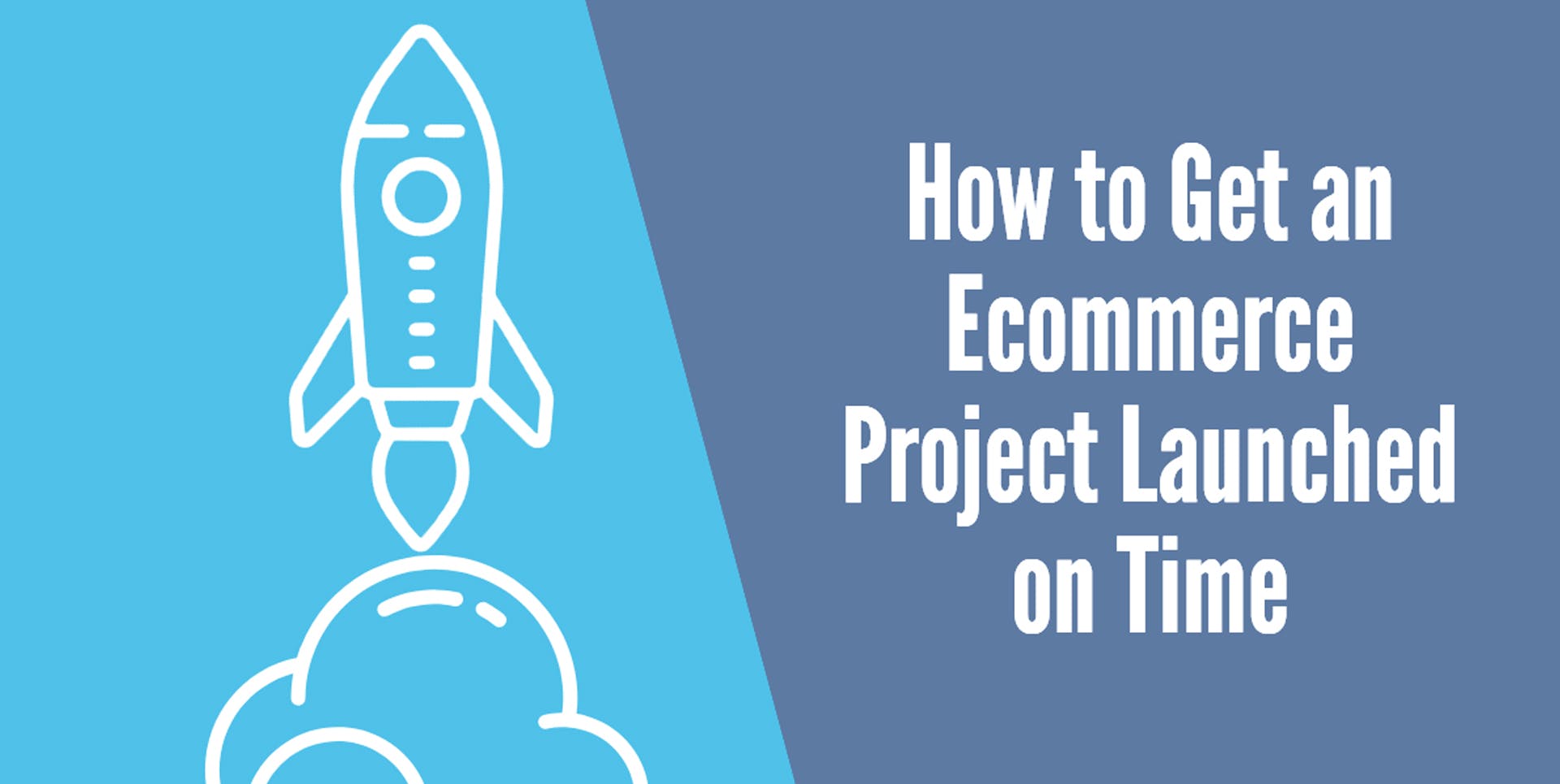How to Get an Ecommerce Project Launched on Time

Whether you’re planning to launch your first ecommerce website or you’re embarking on a redevelopment project, there is a lot of work involved. A successful ecommerce project requires the help of an experienced web development agency, so make sure you find the best one by doing thorough research. Don’t just trust their sales pitch; get references from the agency’s previous clients to check that the projects they’ve completed have actually been a success!
Working with an agency involves obligations of both parties throughout the project. The agency’s responsibilities include creating the site structure, designing and developing the website, plus testing and snagging. Client’s obligations include creating the content, organising the product data and testing the website.
Before the project kicks off, a BRD (Business Requirements Document) is provided by the agency, detailing all of the project milestones. This gets signed off by the client after each stage is complete and is kept up to date during the course of the project. We work very closely with our clients, with various meetings and regular discussions, as well as weekly updates on the project’s progress.
Our projects team have worked with a wide variety of online retailers, with some clients finding it easier than others to meet project deadlines.
No matter what type of retail business, there are ways you should prepare to launch your website. To help with this, Jenni and Marta from our projects team have put together their top tips to help make your ecommerce project a success.
Content
Start working on the website content from the very beginning. This is the part of the project that is very often underestimated by clients so don’t leave this until the last minute – good content takes time to create! Getting this aspect of the site started from the beginning can save a lot of stress before the launch! Make sure you prepare text content in advance so that you can easily copy and paste content into the new site.
Don’t forget about images either, these are essential for any website but they are vital for ecommerce sites so make sure you have a plan in place to ensure image assets are ready in time.
Product Data
Product data should also be considered from the very start of the project. Product data can have a greater level of complexity than other types of content so making sure this is considered from the very beginning is essential. Decide on the product range you want to launch with and stick to that! New products can be added after the website has launched. Ensuring that product data is sorted as soon as possible means that the product data can be present in the site when testing begins.
MVP
Always aim for the Minimum Viable Product! This means you can launch faster and have a good, stable base to then build on. Think carefully about the core features you need on the site, be ruthless and stick to this brief – ‘nice to haves’ can be added later. Any additional features should be added as a phase 2 and should be chosen based on analysis of MVP performance over a period of weeks, post-launch.
Client-Side Product Owner
Launching a website is a lot of work, and there should be someone (client-side) who is fully responsible for managing the project. This person needs to ensure all of the pre-set deadlines are met, and that the site is properly tested and signed off as fulfilling the client’s requirements. Having one person with this responsibility makes communication between you and your agency more effective and helps the project run much more smoothly.
Summary
Hopefully, you’ll now have a good understanding of how much work is involved in getting your website ready for launch, and what you can do to help ensure the project goes to plan. If there’s not enough time and effort put into your project, this could not only delay your launch, but cost you money in delayed revenue generation too.
If you have an ecommerce project you’d like to discuss with Digital Six, feel free to get in touch.






